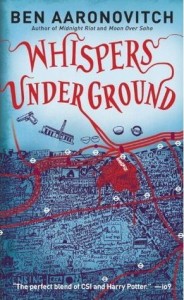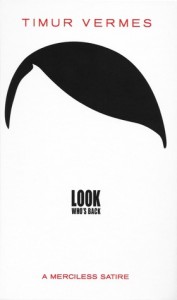 Title: Vernon Subutex Trilogy (Goodreads)
Title: Vernon Subutex Trilogy (Goodreads)
Author: Virginie Despentes
Translator: Frank Wynne
Published: MacLehose Press, 2017-2020
Pages: 1088
Genres: Contemporary
My Copy: Paperback
Buy: Amazon, Book Depository, Kindle, Wordery (or visit your local Indie bookstore)
How many translated series can you think of? Apart from Proust, or Elena Ferrante or Karl Ove Knausgård. Maybe, there are more than I expected; Virginie Despentes’ trilogy Vernon Subutex is currently the most talked about, with book three just being released in English. This trilogy started off as a cutting-edge look into the punk sub-culture of France but slowly, with each book the focus shifted, stepping away from the music industry, towards a mystery in book two and finally the third novel focusing more on a cult-like community. While Vernon Subutex is the focus of this trilogy, I found that the different styles of each novel become a little disconcerting for myself.
Virginie Despentes draws from her own career in these books, I suspect using some of her own experiences to drive the plot. Before becoming a novelist, she worked in a few fields including as a sex worker and a pornographic film critic. While these careers play a part in the Vernon Subutex trilogy along the way, it started with her experiences as a salesclerk in a record store and a freelance rock journalist. It is these aspects that I found the most fascinating, my love of music (particularly punk rock) really drew me to this series in the first place.
I loved how the first novel focused on the music, Vernon Subutex started working in this record store in his twenties. The store was legendary back in the days, but now thanks to the internet and digital music it is struggling. Even Vernon Subutex himself has a cult-like status (which plays out more later in the series) with people on the internet speculating that he owned the last recordings of musician Alex Bleach. What I loved the most about Vernon Subutex 1 was reading about the industry and exploring the dark side of the punk culture, from the violence and drug abuse often associated with this culture to the less talked about racism and sexism.
Unfortunately, the books slowly digressed away from exploring the punk scene, and maybe my interest did as well. That is not to disregard books Two or Three, my interest was the scene and I was less interested in following the character Vernon Subutex. The first novel focused on the punk scene, whereas book two focused on this one character and a small group of people around him, a group that have banded together at a bar in the Parc des Buttes-Chaumont. While the plot of Vernon Subutex 2 focuses more on what happened to the lost tapes of Alex Bleach, I was more interested in themes than plot, so this became a book about class struggle.
This group of people hanging in the Parc des Buttes-Chaumont turned into a cult, which leads to the third novel of this trilogy, where Vernon Subutex has become a spiritual leader to the group. The final book in the series, for me is the weakest, but it was clear Virginie Despentes knew what she was doing and where she wanted to take this journey. There was a strong focus on social struggles that plays out here, focusing more on homelessness and the way these people banded together. The cast of characters slowly shrinks with each book, but I really like how Despentes brings in new characters and then they disappear after a short period of time. This might frustrate many, but I found it natural; sometimes you meet someone, and they are only in your life for a small period of time, they might make an impact but then they are gone.
Vernon Subutex 3 was more political, with the 2015 Charles Hebdo shootings playing a part of the plot. The satirical papers controversial depictions of Muhammad are believed to be the cause of that attack. However, it was Michel Houellebecq that was on the cover of the magazine when this attack happened. I bring this up because I find Virginie Despentes and Houellebecq have similar styles. Both are satirical French authors that make me question myself and their writing style. They leave me with an unease while reading them and I spend time contemplating their satirical nature. I even find myself wondering if they are actually satirical or just overdoing the transgressive. This is not easy reading and knowledge of the punk scene and modern French history became vital aspects of my appreciation of Vernon Subutex.
When I think about the writing of Virginie Despentes, I have a similar feeling as when I think about Michel Houellebecq, I am unsure how I feel about them as authors. I have read five Despentes novels and while I enjoyed the Vernon Subutex trilogy, I find it hard to fully appreciate her works. Her writing is a combination of the thriller genre, but it tends to be overly transgressive. I am not trying to be negative, just not the style of literature I tend to enjoy. I am curious to know more about Despentes’ life and might read her feminist manifesto King Kong Theory, which like the Vernon Subutex trilogy has been translated by the legendary Frank Wynne.

 Title: The Shape of the Ruins (
Title: The Shape of the Ruins ( Title: The Impostor (
Title: The Impostor ( Title: Vernon Subutex, 1 (
Title: Vernon Subutex, 1 ( Title: In the Café of Lost Youth (
Title: In the Café of Lost Youth ( Title: Dexter Is Dead (
Title: Dexter Is Dead ( Title: Something Coming Through (
Title: Something Coming Through ( Title: Broken Homes (
Title: Broken Homes ( Title: Whispers Under Ground (
Title: Whispers Under Ground ( Title: Look Who’s Back (
Title: Look Who’s Back (